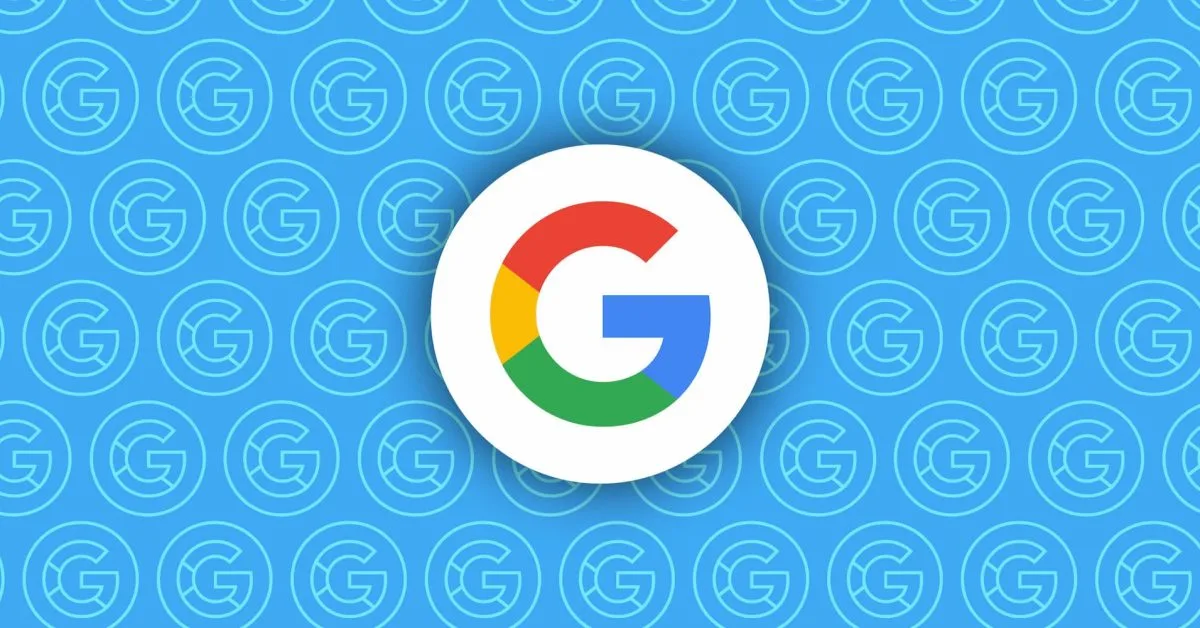The best parental control apps of 2024
The web can be a scary and unpredictable place, especially when you’re a parent. Moreover, it can be unbelievably nerve-wracking when you are trying to protect young children from the underbelly of the internet, its sites, and social media apps.
Thankfully, most parental control apps help you keep an eye on your children’s activities so that you can rest easy and monitor what they can see and who they can talk to.
Also: Best tablets for kids, according to parents
Many parental control apps are available online, making it much more difficult to decide which one is right for you. In any case, parental control apps should never be abused to intrude on someone’s privacy and monitor them without consent, and so we urge users to only implement these controls for young children with the intention of keeping them safe.
If you want an app to help you monitor your children, we’ve vetted the best parental control apps for your family.
ZDNET’s top pick for best parental control app is Kaspersky Safe Kids. This popular service has reasonable mobile reviews and a large customer base, providing affordable protection with screen time limits, safe location settings, and website access management.
Best parental control apps of January 2024
- Geofencing capability
- Unlimited devices
- Affordable whole-family protection
- Limited social media monitoring
Kaspersky Safe Kids features: Free version: Yes | Device limits: Unlimited | Screen time limits: Yes | App Store rating: 3.5 | Google Play rating: 3.4 | GPS, Safe area features
Kaspersky Safe Kids offers many of the best features but without the cost. In addition to restricting adult content and streaming sites like YouTube, you can choose from several ready-made categories to streamline parental controls, making this option our top choice.
You can also create your own premade list of sites and even games, giving you full control over which sites your child can access. It’s possible to accept or reject requests for access in real time. You can determine how many hours per day your child can access a device, plus monitor your child’s location via GPS for peace of mind when your child is out of sight, with the option to set ‘safe’ locations.
With Kaspersky, you can put all of your child’s devices under one license, giving you hardly any restrictions and eliminating the decision of which machines to monitor, whether Windows, macOS, Android, or iOS.
Premium plans begin at $20.99 for the first year. However, expect the annual cost to rise slightly after your introductory period.
- Easy to use
- Screen time restrictions
- Mobile GPS locator
- Does not apply to social media
- Some users report inaccurate readings
Qustodio features: Free version: Yes | Device limits: Up to 5 (basic plan) or unlimited | Screen time limits: Yes | App Store rating: 4.3 | Google Play rating: 3.7 | App, game blocking
Qustodio is a great pick, offering a suite of features to help keep your children safe. Included are daily screen time limits that you can personally set and manage, controlling how much time your child uses the device.
There is also app blocking to keep your child away from the wrong websites and the wrong apps. App monitoring includes the ever-popular YouTube, so your children do not risk accessing the wrong videos.
The Control App is your gateway to different tools, including child tracking and advanced reporting. Simply download the app on your phone and the companion app on your child’s phone, and the two will sync from there.
Qustodio works on a variety of devices, including mobile phones, tablets, and desktop devices, as well as multiple platforms, including macOS. With the free app, you get to supervise a single device, but you can upgrade to monitor up to 5 devices or an unlimited number.
Premium plans begin at $54.95 per year.
- Antivirus protection included
- Helpful geofencing tools
- Unlimited devices
- No free version
- Limited compatibility
Norton Family Premier features: Free version: No; plans start at $49.99/year | Device limits: Unlimited | Screen time limits: Yes | App Store rating: 3.9 | Google Play rating: 3.2
Norton is known for its fantastic antivirus protection, so it makes sense that it would have great parental controls, too. Norton Family Premier helps you monitor the sites and apps your child visits while allowing you to block specific web addresses and online services.
Also: The 5 best antivirus software and apps
You can see exactly which videos your child views, as well as any search terms that may give cause for worry. If your child needs the Internet for school (which, let’s face it, most kids do these days), turn on School Time mode so your child can access topics relevant to assigned homework.
You can also set limits based on your preferred schedules for your children, allowing them access when you see fit. Geo-location tracking features help you stay informed on where your children are. You can also access weekly and monthly reports via email or the Parent Portal.
There is no free plan, and subscriptions start at $49.99 per year. A 30-day free trial is available.
- Simple interface
- Comprehensive reporting
- Detailed dashboard
- No call monitoring
- Low mobile app reviews
Net Nanny features: Free version: No; plans start at $39.99/year | Device limits: 20 | Screen time limits: Yes | App Store rating: 2.7 | Google Play rating: 2.2
Net Nanny has a pronounced focus on social media with detailed screen time monitoring. It also allows you to track your child’s activity in real-time, whether it is through an app or online.
You can see what your children access with immediate alerts when your child ventures into unsavory types of sites. Special notifications are in place to immediately inform you when your child comes across specific sites or content relating to drugs, pornography, weapons, or suicide.
There are also time limits that you can assign; Family Feed serves as your main summary, allowing access to the latest reporting so you can see exactly which apps your child has visited. And the Family Map lets you check your child’s location anytime for extra reassurance. Keep in mind, however, that users report that the mobile apps can be glitchy.
Plans begin at $40 per year for one Windows or macOS desktop machine. The family plan, currently on offer with a 30% discount ($55/yearly), protects up to five devices. If you need protection for up to 20 devices, you can save $40 on a premium annual plan reduced from $130 to $90/year.
- iOS compatibility
- Easy setup
Google Family Link features: Free | Device limits: Unlimited | Screen time limits: Yes | App Store rating: 4.6 | Google Play rating: 4.6 | GPS monitoring |
Google Family Link, available on Android and iOS devices, is a fair option for parental control, although it does lack some advanced features.
Once you’ve set up a family on your Google account, you can set up screen time limits, approve or reject apps your child wants to download, and you can restrict YouTube access if you desire. You will receive alerts related to web and app usage.
A feature that parents might find valuable, specifically, is the option to enable GPS for location tracking. Regarding younger children, this feature can give you peace of mind by alerting you when your child arrives home from school.
- Free
- Wide range of features
- Some users dislike the user interface
Apple Parental Controls Features: Free | Device limits: Unlimited | Screen time limits: Yes | Purchase protection | Gaming restrictions
A free option for iOS device users is Apple’s native parental control system.
Apple’s parental controls, available for the iPhone, iPad, and iPod touch, include content and privacy controls alongside Screen Time, which allows parents to set screen time limits. Furthermore, you can restrict and ban specific apps and features, including purchasing and accessing game services.
It’s easy to set up, too. You need to access the Settings tab and enable the device by selecting “This is My Child’s [Device],” then you can decide on screen and other feature restrictions.
While it isn’t perfect — with a recent bypass bug in Screen Time causing frustration for some users — it’s worth considering if you want a free monitoring solution.
The best parental control app is Kaspersky Safe Kids. This popular service has reasonable mobile reviews and a large customer base, providing affordable protection with screen time limits, safe location settings, and website access management. Plus, with wide compatibility, it is easy to download a version that works for your device. Here is a look at how the best parental control apps compare on free version offerings, operating system compatibility, and device limits:
|
Best parental control app |
Free version? |
Compatibility |
Device limits |
|
Qustodio |
Yes, or $55/year |
Android, iOS |
5, unlimited |
|
Kaspersky Safe Kids |
Yes, or $20.99/year |
Android, iOS, Mac, Windows |
Unlimited |
|
Net Nanny |
No; plans start at $40/year |
Android, iOS |
20 |
|
Norton Family Premier |
No; plans start at $50/year |
Android, iOS, Mac, Windows |
Unlimited |
|
Apple parental controls |
Yes |
iOS |
Unlimited |
|
Google Family Link |
Yes |
Android, iOS |
Unlimited |
*MSRP at the time of writing. Please note that actual prices may vary depending on available sales, deals, discounts, and coupons.
ZDNET has compiled a diverse offering of the top parental control apps, designed to help you stay one step ahead of your tech-savvy child, while also keeping them from accessing harmful content. To find the best parental control app for you, these are our expert recommendations.
|
Choose this parental control app… |
If you want… |
|
Qustodio |
A multi-featured tool for parental control featuring a mobile GPS locator and screen time restrictions that you intend to use for at least a year. |
|
Kaspersky Safe Kids |
A budget-friendly parental control app with geofencing capabilities and one that provides solid protection for all of your kids’ devices under one license. |
|
Net Nanny |
A parental control app for social networking sites delivering immediate alerts if your child attempts to access content they shouldn’t or they are unaware that they are going down restricted content rabbit holes. |
|
Norton Family Premier |
To combine parental control with extra antivirus protection, geofencing tools, and unlimited device monitoring. |
| Apple parental controls | A free option to protect iOS devices. Apple’s native parental control system won’t be to everyone’s taste, but it will help you monitor iOS devices. |
| Google Family Link | A free option for Android and iOS devices. While limited, this option provides parents with screen time monitoring and location tracking. |
There are numerous factors we considered when we selected the best parental control apps, including:
- Tools: Each app has different features to help you monitor your child’s activity, whether it is screen time limits or content monitoring. You may need some features, but not others, and so we have endeavored to provide a variety of options.
- Compatibility: We look at device compatibility to ensure that there is an app that will work with your device, including smartphones and tablets. Most of us use Windows, macOS, Android, and iOS machines so strong multi-platform capability is a must.
- Location tracking: Many of the best parental control apps offer GPS capability, so you can locate your children anytime as long as they have their devices to hand. However, keep in mind that your own use of GPS tracking — especially at older ages — should be restricted to what is necessary.
- Cost: Affordability is a large concern to ensure that parents on a tight budget still have a solution for parental control.
Be sure to carefully review the terms and conditions to ensure they work for you. And again, parental control apps are intended for safety, and their capabilities should not be abused.
A parental control app is an app that allows parents to monitor their children’s virtual activity for potentially harmful or inappropriate content. For many programs, you’ll be able to set online time restrictions, set preventions so your child cannot access certain websites and content, and provide immediate alerts if your kid tries to bypass the content filter.
Parental control apps are a wise way to help keep your child safe online. They also give you the opportunity to speak with your children about implementing best practices for online use.
The cost depends on the manufacturer and how many devices you want to have monitored. Some parental control apps are free, whereas others charge users monthly or annually depending on the required services and the number of devices they want under their plan. Subscription models are common.
There are several parental control apps specific to gaming. Among the best parental control apps are Family on PSN for PlayStation, Nintendo Switch Parental Controls, and Microsoft Family Safety for Xbox.
You can access the parental controls through your console settings. To demonstrate, PlayStation allows you to set up family management, where you can impose restrictions for each specific user.
With this in mind, you can have a sub-account under your family umbrella for each child and set restrictions that coincide with their age level. Not only does this affect the kind of content they’ll be able to access, but it also limits their ability to message or voice chat within the game, share content they created, and more.
Typically, parental control apps installed on devices such as smartphones and tablets will require permission for monitoring purposes. This may include access to accessibility features, GPS, call logs, and website logs, with activity data made remotely available to primary users.
However, some parental control apps can go ‘too far’ in what permissions they require and cross the line between monitoring for safety purposes and privacy violations. Indeed, vendors, including Apple, have implemented their own native parental control options as an alternative to third-party parental control apps that may go too far or be abused.
Our recommendations above represent the best parental control apps on the market in 2024. However, if you want to consider a few more worthwhile options, we have found a number of alternatives, as listed below:
View at AuraView at Canopy/ZDNETView at Ourpact
Before you can monitor your child’s activity, you need the right devices. Check out our expert picks for the best smartphones, the best computers, and the best laptops.



